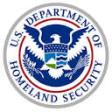DHS posts RFI for biometric expertise
 On June 25, the U.S. Department of Homeland Security posted a request for information for biometric subject matter expertise. Responses are due by 4:00 p.m. Eastern on July 20.
On June 25, the U.S. Department of Homeland Security posted a request for information for biometric subject matter expertise. Responses are due by 4:00 p.m. Eastern on July 20.
This Request for Information (RFI) describes the subject matter expertise support required by the Transportation Security Administration (TSA) Office of Intelligence and Analysis (OIA) Program Management Division (PMD). Contractors who do participate in this RFI, shall provide technical expertise to the following subject areas to include, but not limited to, biometric (examples, facial, iris, and voice recognition, fingerprint) identification, biometric authentication, smart card technology, smart card reader technology, fixed and mobile readers, mobile applications, smart card solutions and analysis, smart card topography, smart card and secure integrated circuit (IC) controllers, large scale government (biometric) program execution capability, biometrics diagnostics, card credentialing, certificate authorities, enrollment services, technology standards, encryption technology, physical security and logical access, and the application of Federal and industry standards.
TSA’s OIA PMD manages a variety of critical national and transportation security programs. These programs conduct security threat assessments (STA) for individuals in accordance with the affected programs’ regulated authorities. A key part of these STAs is the collection, processing, and storage of biometrics (i.e., 10-fingerprints) which are needed to conduct the required fingerprint-based criminal history records check (CHRC) with the Federal Bureau of Investigation (FBI); however, there are multiple initiatives underway that could dramatically change how TSA currently uses biometrics, and for which biometrics expertise is sought.
Technical expertise is needed to efficiently and effectively address capabilities, anomalies, and vulnerabilities related to biometric and identity assurance initiatives and requirements across all of the OIA STA programs that conduct vetting to include: the Transportation Worker Identification Credential (TWIC® ), Airport/Aviation Worker (Security Identification Display Area (SIDA) Identification Media, Alien Flight Student Program (AFSP), TSA Pre✓® Application Program (TPAP) and the Hazardous Materials Endorsement (HME) Threat Assessment Program (HTAP). To illustrate, the implementation of recurrent vetting capabilities, required TSA to develop identity resolution guidance and tools to review biometric and biographic source encounter data. The use of smart card readers, credential validation solutions, and Access Control Systems (ACS) by privately and publicly owned and operated seaports, facilities, or vessels.
As part of its STA enrollment processes, TSA receives biometric data from outside sources and maintains limited direct visibility into the quality of biometric samples collected. The consequence of poor quality samples and non-conforming biometrics data is often delayed or terminated employment of applications within TSA’s field of transportation. TSA also uses transportation worker biometric information, to develop and issue biometric access credentials. Using an electronic card reader, a transportation worker’s identity can be positively verified by matching a credential’s biometric template to a live sample or ACS reference biometrics.
The development of credentials requires adherence and alignment to directives, standards, and special publications for use of Federal identity credentials. Based on a transportation facility’s current or planned access controls, TSA’s credential(s) may encounter operability issues that require decisions from TSA, to ensure that eligible transportation workers can gain access to secure facilities or vessels. Biometrics expertise is required by TSA, to analyze and diagnose these, and related day-to-day biometric issues, and recommend proactive solutions to manage the quality and completeness of biometric packages being offered by regulated stakeholders to TSA, and ultimately ingested by TSA systems.
Full information is available here.
Source: FedBizOpps








